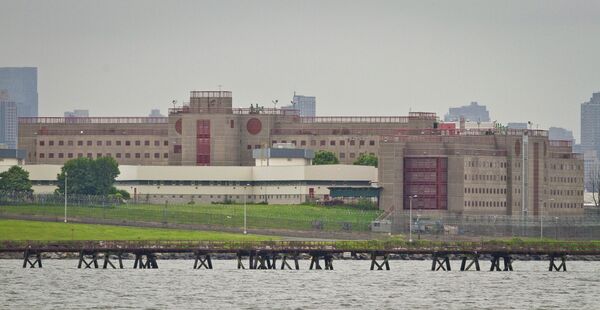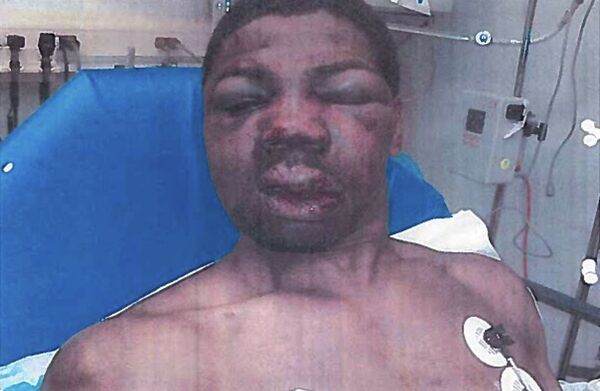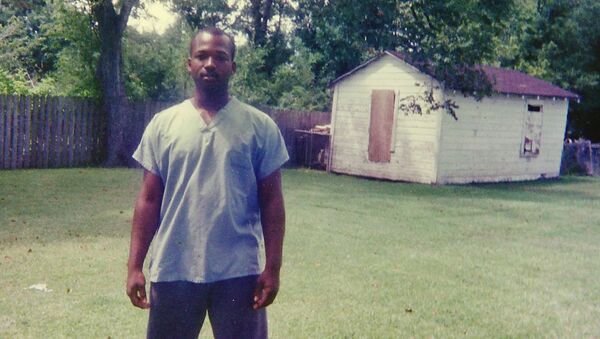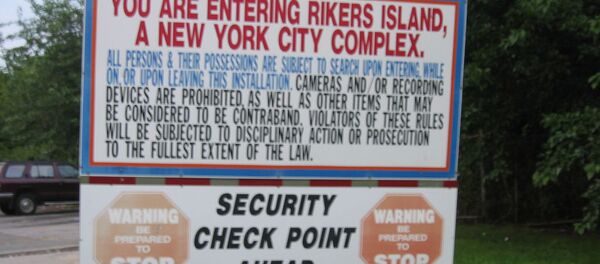A state oversight panel is calling on federal prosecutors to open the investigation into the death of the inmate whose treatment at the hands of prison officials their report calls "so incompetent and inadequate as to shock the conscience."
Bradley Ballard, 39, who suffered from paranoid schizophrenia and diabetes, was locked in a cell for six days and denied medical care. When a doctor was finally brought to him he was found covered in feces, and suffering from an infection caused by a sock wrapped around his genitals. He died shortly thereafter on Sept. 11, 2013.
Homicide by neglect
The medical examiner ruled the death a homicide, with the ultimate cause of death identified as diabetic ketoacidosis, which occurs when the body doesn’t have enough insulin to break down sugars and the liver starts to break down fat instead.
The New York State Commission of Correction’s report, obtained by the Associated Press but not publicly released, condemns both the city and the prison’s health care provider, Corizon Health, as "directly implicated in his death."
During the six days Ballard was confined to his cell, wardens, guards, medical and mental health staff and others visited him 57 times, the report details, but did nothing as his mental and physical state worsened.
Ballard “was denied access to his life supporting prescribed medications, denied access to medical and psychiatric care, denied access to essential mandated services such as showers and exercise periods and denied running water for his cell,” according to the commission’s report.

The death made headlines around the same time as another mentally ill Rikers inmate, Jerome Murdough, died after temperatures in his cell had soared to 101 degrees due to a heating equipment failure. In the wake of the highly-publicized cases, New York Mayor Bill de Blasio pledged to spend $130 million to send mentally ill inmates to treatment instead of to Rikers.
Around 40% of the 11,000 or so inmates in New York City have some sort of mental health diagnosis, officials estimate.
The U.S. Department of Justice is now reviewing the report, and the oversight panel’s commissioner, Dr Phyllis Harrison-Ross, has also recommended that the DOJ open a criminal investigation and a more comprehensive investigation into both the Rikers Island facility and Corizon Health.
Corrections commissioner Joseph Ponte said mentally ill inmates were being provided with a new housing facility, and that guards have received more training in communication and how to interact with mentally ill inmates.
“We continue to investigate and have adjusted our practices to ensure that a similar tragedy does not happen again,” he said in a statement.
A “Culture of Violence”
The Rikers prison complex has been under intense scrutiny as reports of violence, neglect and misconduct continue to emerge.

A 79-page report by the Department of Justice, released in August 2014 after 2-and-a-half years of research, concluded that there was a “deep-seated culture of violence” at Rikers, particularly against young inmates.
In December, federal prosecutors in Manhattan filed a lawsuit against the city for its failure to reform conditions at Rikers. Though Mayor De Blasio announced an end last year to the use of solitary confinement for 16- and 17-year-old inmates, that was only one of 73 recommendations for reform made by federal prosecutors.
On New Year’s Day of this year, when guards failed to implement a suicide watch ordered by a prison psychiatrist, inmate Fabian Cruz hanged himself. The lapse in procedure was a violation of Department of Corrections protocol.
A recent investigation into hiring practices also found an alarming trend of hiring correctional officers with criminal histories, gang affiliations or mental health problems that should have either disqualified them from employment or required deeper investigation.





